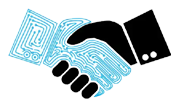The transformation of the U.S. financial landscape is being driven by an unstoppable force: B2B blockchain solutions. As businesses demand faster, more secure, and transparent financial processes, blockchain technology has emerged as the catalyst reshaping traditional financial systems. From cross-border payments to smart contract automation, B2B blockchain solutions are streamlining operations, eliminating intermediaries, and unlocking new opportunities.
In this in-depth article, we explore the top B2B blockchain platforms revolutionizing finance in the U.S., their real-world applications, and why these technologies are poised to define the future of financial infrastructure.
What Are B2B Blockchain Solutions?
Business-to-Business (B2B) blockchain solutions refer to decentralized technologies designed to facilitate secure, efficient, and verifiable transactions and data sharing between companies. Unlike public blockchains like Bitcoin or Ethereum, many B2B solutions operate on private or permissioned networks, offering better control, scalability, and confidentiality—critical elements in financial services.
1. RippleNet: Transforming Cross-Border Transactions
Ripple is at the forefront of B2B blockchain payments with its RippleNet platform. Designed specifically for financial institutions, RippleNet enables instant, low-cost international transactions.
Key Features
-
Real-time settlement using the XRP Ledger
-
Liquidity on-demand through XRP
-
Secure messaging layer for transparency and compliance
-
Reduced transaction costs compared to SWIFT
Use Cases in U.S. Finance
-
Major banks and payment providers in the U.S. are adopting RippleNet for remittance services, cross-border treasury flows, and real-time payments.
-
Ripple’s partnerships with banks like PNC, Bank of America (pilot stage), and American Express underscore its institutional-grade performance.
2. IBM Blockchain: Smart Contract Integration for Financial Workflows
IBM Blockchain leverages the Hyperledger Fabric framework, offering a robust infrastructure for automated financial processes and inter-company data exchange.
Key Features
-
Permissioned, enterprise-grade network
-
Built-in smart contract capabilities
-
High-throughput transaction processing
-
Integration with legacy financial systems
U.S. Financial Applications
-
Trade finance automation with reduced paperwork and fraud
-
Loan origination and servicing using smart contracts
-
Interbank settlement systems powered by transparent ledgers
IBM’s blockchain has been used by institutions like JPMorgan Chase, Wells Fargo, and Citigroup for pilot projects and scalable enterprise deployments.
3. ConsenSys Quorum: Privacy-Focused Blockchain for Financial Institutions
Quorum, developed by JPMorgan and now managed by ConsenSys, is a permissioned version of Ethereum tailored for enterprise use. It offers high performance and privacy, making it ideal for complex financial transactions.
Core Benefits
-
Built-in privacy layers for confidential transactions
-
Fast consensus mechanisms suitable for finance
-
Modular architecture supporting DeFi and enterprise-grade apps
Finance-Specific Deployments
-
Tokenized assets and securities issuance
-
Private interbank payments
-
Smart contract automation for bond issuance and derivatives
Quorum’s flexibility is helping financial firms modernize their operations while staying compliant with U.S. regulations.
4. R3 Corda: Enterprise Blockchain for Regulated Financial Institutions
R3 Corda is not a traditional blockchain—it’s a distributed ledger platform designed specifically for regulated financial environments. It enables financial firms to transact directly, with full legal enforceability and privacy.
Distinct Features
-
Point-to-point architecture for secure communication
-
No global broadcast—only relevant parties share data
-
Notary services to validate transactions
-
Rich identity and permission management
Adoption in the U.S.
-
Used by financial giants like BNY Mellon, Nasdaq, and Wells Fargo
-
Supports digital asset exchanges, syndicated lending, and post-trade settlement
-
Enables compliance with SEC and FINRA requirements
Corda’s strong regulatory focus makes it a top choice for U.S. capital markets and banking networks.
5. Chainalysis: Blockchain Intelligence for Financial Compliance
While not a traditional B2B transaction platform, Chainalysis plays a critical role in U.S. finance by providing blockchain analytics, compliance tools, and fraud detection solutions.
Why It Matters
-
Financial institutions need blockchain forensics to comply with AML (Anti-Money Laundering) and KYC (Know Your Customer) regulations.
-
Chainalysis offers real-time transaction monitoring, risk scoring, and case management tools.
Impact on U.S. Finance
-
Used by banks, crypto exchanges, and government agencies
-
Ensures secure and compliant blockchain adoption
-
Bridges the gap between traditional finance and crypto
6. Stellar: Fast, Low-Cost Blockchain for Financial Inclusion and B2B Payments
Stellar is an open-source blockchain designed for fast, affordable financial services, especially cross-border B2B payments and asset tokenization.
Key Advantages
-
Near-instant settlement (2–5 seconds)
-
Fraction-of-a-cent fees
-
Built-in decentralized exchange (DEX)
-
Supports fiat token issuance and stablecoins
Notable Partnerships in the U.S.
-
MoneyGram uses Stellar for real-time fiat-to-crypto conversions
-
Circle and USDC are integrated into the Stellar ecosystem
-
FinClusive leverages Stellar for B2B AML/KYC onboarding
Stellar’s focus on interoperability and speed makes it a preferred choice for financial service providers targeting SMEs and emerging markets.
7. Fireblocks: Secure Digital Asset Infrastructure for Enterprises
Fireblocks provides an institutional-grade platform for secure digital asset custody, wallet management, and transaction automation. It serves hedge funds, banks, payment processors, and exchanges.
Why It Stands Out
-
MPC (Multi-Party Computation) for secure private key management
-
API-first approach for automation and integration
-
End-to-end compliance support and insurance coverage
Usage in U.S. Finance
-
Trusted by BNY Mellon, Revolut, and BlockFi
-
Facilitates DeFi access for institutions
-
Powers secure crypto trading desks and payment rails
As digital assets continue to gain legitimacy, Fireblocks is becoming the backend security layer for crypto integration into mainstream finance.
How These Blockchain Solutions Are Reshaping U.S. Finance
The impact of these technologies can’t be overstated. They are:
-
Reducing transaction costs and time in B2B financial operations
-
Improving transparency and auditability for regulators
-
Enabling automation through smart contracts
-
Enhancing cybersecurity with tamper-proof ledgers
-
Expanding access to capital through tokenization and digital assets
Challenges and the Road Ahead
Despite the momentum, U.S. financial institutions face several hurdles to mass adoption, including:
-
Regulatory uncertainty around digital assets
-
Interoperability issues between platforms
-
Legacy system integration
-
Scalability and privacy trade-offs
However, the push toward real-time settlement, on-chain compliance, and programmable finance is too strong to ignore. With advancements in zero-knowledge proofs, interoperability protocols, and regtech, B2B blockchain adoption in U.S. finance is set to accelerate.
Conclusion
The top B2B blockchain solutions—RippleNet, IBM Blockchain, Quorum, Corda, Chainalysis, Stellar, and Fireblocks—are actively rewriting the playbook for U.S. finance. Whether it’s instant cross-border payments, smart contract-driven lending, or secure digital asset custody, these platforms are not just improving efficiency—they’re building the foundation of a next-generation financial ecosystem.
Businesses that adopt early stand to gain a competitive edge, reduced operational costs, and better regulatory alignment. The time for enterprises to embrace B2B blockchain in finance is now.






